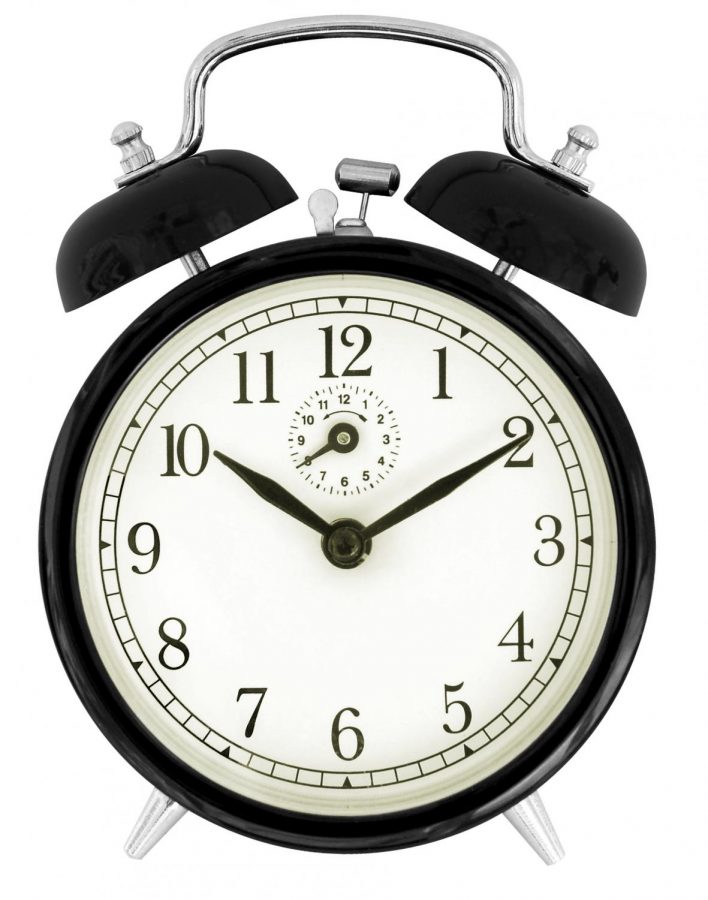Students hit snooze on the new attendance policy
With WCHS’s new attendance policy in place, students will need to make sure to arrive on time to class. This especially means, no ignoring your alarm clock and sleeping in during first period.
March 3, 2020
There are countless reasons students may not be within their classroom’s door frame at the second the bell rings commencing the beginning of a period. Whether they have to use the bathroom before class, carpool to school with siblings, can’t find parking or get stuck in the sometimes unpredictable traffic surrounding the school, tardiness to a certain extent is inevitable–but at WCHS, none of these reasons merit an “excused” tardy.
The beginning of the third quarter was marked with many changes– new courses, new teachers and a crackdown on student attendance. Within the first days of the quarter, WCHS students were notified that there would be absolutely no tolerance of unexcused tardy arrivals, especially in periods first and sixth. However, the warnings were not met with the threats of a call home or the usual letter displaying tallied-up absences. This time, the warnings were security guards, lunch detentions and the enforcement of the automatic class failure rule. While tardiness can certainly be disruptive, these new consequences are simply too much.
Teachers and administration have come to the consensus that if a student gets three or more unexcused tardies, they will receive lunch detention. If they miss this lunch detention, it has been stated that a security guard will be sent to find the student in class. If these infractions are consistent, students will even be called to counseling. However, worst of all have been the forewarnings to start enforcing the used-to-be empty threat of automatic class failure after five unexcused absences.
While making an attempt at reducing the number of students that arrive late and cut class, this new promise of action is not accomplishing what teachers think it is– if anything, the strict punishment is forcing students to cut class even more.
If a student is running late to a class for reasons outside of their control, reasons not deemed valid enough for an “excused” tardy, the administration’s threats are realistically making them more likely to skip the class altogether to avoid the detention or punishment that accompanies tardiness. For the WCHS teachers going the extra mile to lock their doors or call out students in front of the class after the bell rings to further ostracize the latecomers, skipping class would also allow them to avoid embarrassment. It is an understandable argument that tardiness can be disruptive. However, students having to knock on the door and wait outside the classroom is disruptive.
Administration may think their grand plan to crack down on tardiness is working perfectly, but it is really just giving them more fake “doctor’s appointment” notes and students skipping classes in their cars. The question is whether WCHS administration would rather have more tardies or more absences– it seems like it should be a no brainer.
Even when you look past the flaws in the basic nature of these threats, there are countless more issues with the punishments themselves. If a student gets three unexcused tardies and thus, receives a lunch detention, there are valid reasons that the student would then be forced to miss their punishment; maybe they have to make up a test or use their lunchtime to go in and ask for help from a teacher. The subsequent sending of a security guard seems like an abuse of power. There are more valuable things the security guards could be doing in the school than coming to escort kids who missed their lunch detention for being five minutes late to their first period.
Furthermore, calling students down to counseling feels counterproductive. Making students miss valuable class time to question them about why they have been missing valuable class time is not the right way to handle the situation.
Teachers and administration are constantly speaking about preparing students for college. In college, there are no excused and unexcused tardies– no lunch detentions if you arrive late three times. It is on students to watch over their own attendance and let it affect their own grades. Being on time is a good lesson to learn, but it is a lesson that students need to learn and know for themselves. It is not on WCHS to teach them this.
A student coming late to class in the morning does not mean that they do not know the importance of coming on time– it means that they made a mistake. There need to be punishments for a certain amount of unexcused tardies or absences, but the administration needs to fit the severity of the punishment with the severity of the crime.
To address the automatic class failure threat that comes with five unexcused absences, if a student has an above-average grade in the class, is performing better than students with spotless attendance records, the threat of automatic failure is a power that administration should not even have in the first place.
Ultimately, WCHS teachers and administration must remember that they, too, are sometimes late to first and sixth period. If not, they most likely know what it’s like to be late to school as a student, as they were once students too. Sometimes, coming late is not a sign of disrespect– sometimes it’s just one of those mornings.


